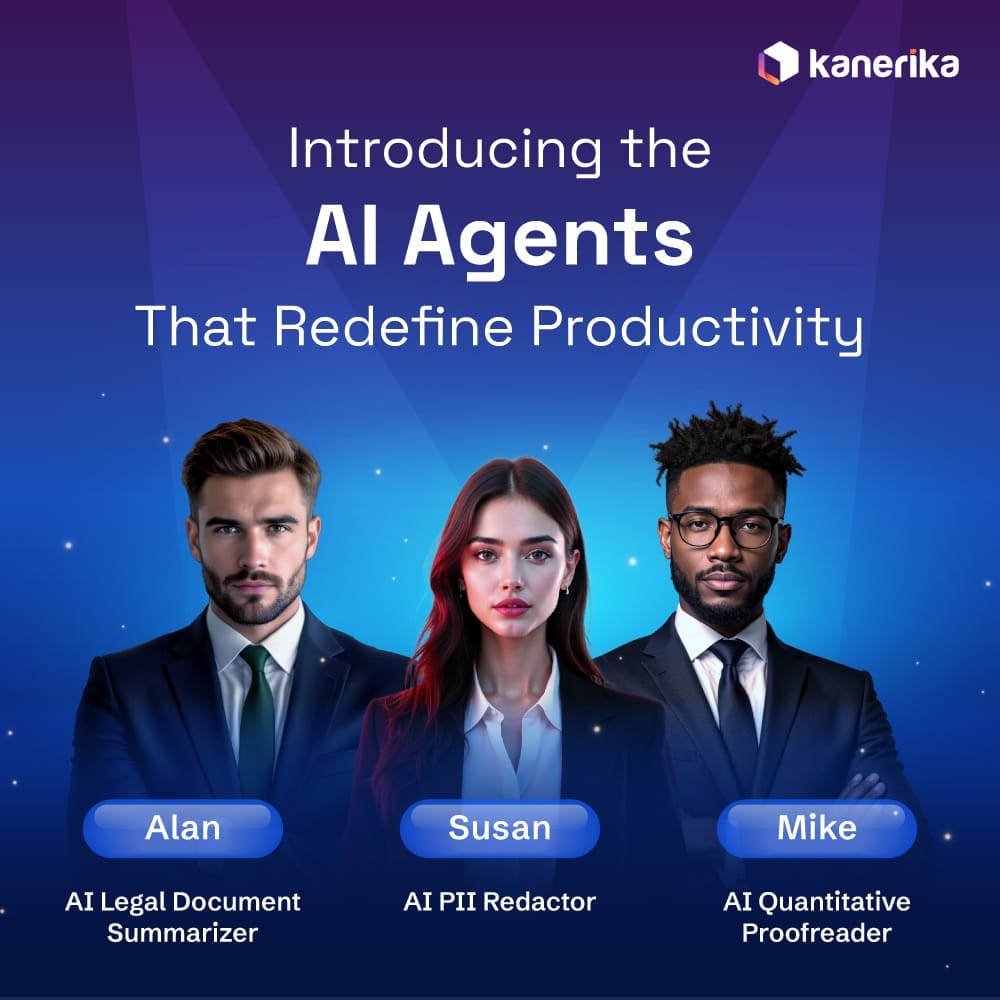HSBC, one of the world’s largest banking institutions, implemented AI agents to revolutionize its fraud detection processes. By deploying advanced machine learning algorithms, the bank reduced its false positives in fraud alerts by 60%, saving millions annually and enhancing customer trust. This is a prime example of how an AI agent in finance can transform traditional operations and deliver measurable results.
For instance, AI-driven predictive maintenance in finance is projected to grow from $5.1 billion in 2024 to $47.1 billion by 2030, reflecting a compound annual growth rate (CAGR) of 44.8%.
This blog will explore the diverse applications of AI agents, their benefits, challenges in implementation, and real-world examples of their impact. It will also provide insights into the future of AI in finance and why adopting these technologies is essential for staying competitive in a rapidly evolving market.
What are AI Agents?
AI agents are software programs or systems powered by artificial intelligence (AI) that can autonomously perform tasks, make decisions, and interact with their environment to achieve specific goals. Moreover, these agents utilize machine learning, natural language processing (NLP), and data analytics to operate intelligently, often mimicking human behavior or reasoning.
Types of AI Agents
Here is a quick breakdown of the different AI agents that are popularly used across industries:
| Type of AI Agent | Description | Example |
| Simple Reflex Agent | Acts on current percepts using condition-action rules; no memory. | Basic thermostat, automatic doors |
| Model-Based Reflex Agent | Maintains an internal state to handle partial observability; uses a model. | Self-driving car reacting to traffic conditions |
| Goal-Based Agent | Acts to achieve specific goals; plans actions considering future outcomes. | Chess AI, route-planning GPS |
| Utility-Based Agent | Considers multiple goals/preferences; maximizes a utility function. | Stock trading bots, recommendation systems |
| Learning Agent | Improves performance by learning from experience and feedback. | Siri, Alexa, Google Assistant |
| Cognitive Agent | Simulates human-like reasoning and decision-making. | Virtual tutors, medical diagnosis AI |
| Multi-Agent Systems | Multiple autonomous agents interact to solve complex tasks. | Robot swarms, autonomous drones |
The Role of Autonomous AI Agents In Finance
1. Data Collection and Analysis
These agents are adept at gathering, cleaning, and integrating vast amounts of data from diverse sources like ERP and CRM systems, social media, and market data. They’re not just data processors; they’re insightful analysts, generating forecasts and recommendations that are pivotal for strategic decision-making.
2. Process Automation and Optimization
Autonomous AI agents excel at automating and optimizing routine, repetitive processes—think invoice processing, reconciliation, reporting, and compliance. They’re not just about efficiency; they also skillfully handle exceptions, errors, and anomalies, continuously improving the processes they oversee.
3. Decision-Making and Execution
These agents are more than just assistants; they’re decision-makers. From budget allocation and cash management to risk and investment management, they make and execute complex decisions based on predefined rules or learned models. Moreover, they can elucidate their decisions and actions, ensuring transparency and accountability.
4. Collaboration and Communication
The capabilities of these AI agents extend to collaboration and communication across various functions, departments, and organizations. They serve as a nexus of interaction, providing feedback, suggestions, and guidance, enhancing the collective intelligence of the financial ecosystem.
Boost Productivity and Efficiency with Next-Gen AI Agents!
Partner with Kanerika for Expert AI implementation Services
Applications of AI Agents in Finance
1. Customer Support and Virtual Assistants
- AI chatbots handle routine inquiries like account balances, transaction details, and branch locations, improving response times.
- Virtual assistants like Erica by Bank of America or EVA by HDFC Bank provide personalized financial advice and troubleshooting.
- Multilingual support for global customer bases ensures inclusivity and better accessibility.
2. Fraud Detection and Prevention
- Continuous real-time monitoring of transactions to identify irregular patterns indicative of fraud.
- AI systems flag unusual account activities, such as unauthorized access or large withdrawals, for human review.
- Reducing false positives by learning customer behavior over time to distinguish genuine actions from fraudulent ones.
3. Risk Management and Assessment
- Advanced analytics assesses creditworthiness for loans, mortgages, and credit card issuance, improving decision accuracy.
- Predictive models help financial institutions anticipate market downturns, enabling proactive risk mitigation.
- AI integrates multiple data sources, including economic indicators and customer profiles, for a comprehensive risk evaluation.
4. Trading and Investment
- High-frequency trading powered by AI executes trades at lightning speed based on real-time market data.
- Robo-advisors provide tailored investment strategies based on customer goals, risk tolerance, and market conditions.
- Sentiment analysis tools evaluate social media and news trends to predict market movements and inform trading decisions.
5. Compliance and Regulatory Reporting
- Automating compliance processes like Anti-Money Laundering (AML) checks, Know Your Customer (KYC) processes, and tax reporting.
- AI agents track changes in regulatory frameworks, ensuring institutions remain compliant without manual intervention.
- Reducing penalties and delays by generating error-free, real-time regulatory reports.
6. Personalized Financial Planning
AI-driven tools analyze spending habits to suggest budgeting tips, savings goals, and investment opportunities.
Customers receive tailored recommendations for insurance, retirement plans, or investment portfolios based on their financial behavior.
Real-time alerts for spending anomalies or opportunities to save based on lifestyle patterns.
7. Loan and Credit Approval
- Faster loan approvals by automating background checks, income verification, and credit scoring.
- AI minimizes biases in lending decisions by relying on objective data rather than subjective judgment.
- Enhances loan recovery processes by predicting repayment capacity and setting flexible repayment plans.
8. Financial Forecasting and Analysis
- Predictive models help businesses and individuals project cash flow, revenue growth, and investment returns.
- AI identifies trends in vast financial datasets, offering actionable insights for long-term planning.
- Automated reporting provides businesses with detailed financial health updates without manual intervention

How AI Agents Improve the Accuracy of Financial Predictions?
1. Data Aggregation
- Comprehensive Data Sources: AI agents gather information from diverse sources, including market reports, social media, economic indicators, and historical data. This comprehensive approach provides a more holistic view of the financial landscape.
- Real-Time Updates: Continuous data aggregation ensures that the insights generated are based on the most current information, reducing the reliance on outdated data that can skew predictions.
2. Real-Time Analysis
- Immediate Insights: By processing real-time data, AI agents deliver insights that reflect the current market situation, allowing organizations to stay updated on changes and emerging trends.
- Dynamic Adaptation: This capability enables financial institutions to adjust their strategies promptly in response to market fluctuations, improving decision-making accuracy.
3. Predictive Analytics
- Pattern Recognition: Advanced algorithms employed by AI agents analyze historical data to identify patterns and trends that can forecast future market movements and financial outcomes.
- Scenario Simulation: AI can simulate various financial scenarios to visualize potential outcomes before implementing decisions, aiding in strategic planning.
4. Machine Learning Algorithms
- Continuous Learning: AI agents utilize machine learning techniques that allow them to learn from new data inputs over time. This adaptability enhances their predictive accuracy as they refine their models based on past performance.
- Hidden Insights: Machine learning can uncover hidden patterns and correlations within large datasets that may not be apparent through traditional analysis methods.
12 Unique AI Applications To Transforming Industries
Explore groundbreaking AI applications driving innovation, efficiency, and growth across diverse industries.
5. Enhanced Risk Management
- Comprehensive Risk Analysis: AI agents evaluate multiple risk factors by analyzing vast amounts of data, leading to more informed investment decisions and credit assessments.
- Proactive Mitigation Strategies: By identifying potential risks early, organizations can develop strategies to mitigate these risks effectively, enhancing overall predictive reliability.
6. Task Automation
- Reduction of Human Error: Automating routine tasks such as data entry and reporting minimizes human errors that can compromise the accuracy of financial predictions.
- Focus on Strategic Analysis: With routine tasks automated, financial professionals can concentrate on strategic analysis and decision-making, leading to higher-quality insights.
7. User-Friendly Interfaces
- Simplified Data Interpretation: Intuitive designs enable financial managers to quickly understand complex data insights, facilitating faster decision-making based on accurate forecasts.
- Real-Time Reporting: These interfaces streamline reporting processes, ensuring stakeholders are kept informed with up-to-date information.
8. Advanced Predictive Models
- Integration of Alternative Data: AI agents can incorporate alternative data sources (e.g., social media activity, payment history) into their predictive models, providing a more comprehensive view of factors influencing financial outcomes.
- Holistic Credit Scoring: By analyzing broader datasets for credit assessments, AI agents improve the accuracy of credit scoring models and broaden access to credit for underserved populations.
Harness The Power Of AI Agents To Transform Your Workflow!
Partner with Kanerika Today.
Kanerika’s AI Agents: Revolutionizing Workflows with Smart Automation

Alan – AI Legal Document Summarizer
Alan simplifies legal processes by converting lengthy, complex documents into concise, actionable summaries, saving time and enhancing productivity.
What Alan Can Do:
- Analyze extensive legal contracts and documents.
- Create customized summaries tailored to user-defined rules.
- Generate unlimited summaries for consistent and efficient results.
Key Features and Benefits:
- Customizable summarization using natural language rules.
- Saves countless hours spent on legal reviews and contract analysis.
- Enhances decision-making by highlighting key legal points.
How It Works:
- Receive a clear and actionable summary directly in your inbox.
- Upload your legal document.
- Define the summarization rules.
Susan – AI PII Redactor
Susan ensures your documents meet data privacy regulations by redacting sensitive information securely.
What Susan Can Do:
- Identify and redact PII such as names, phone numbers, and addresses.
- Deliver redacted documents quickly and securely.
Key Features and Benefits:
- Compliant with global data privacy standards.
- Customizable redaction fields for precision.
- Reduces the risk of data breaches and ensures compliance with regulations.
How It Works:
- Upload your document.
- Specify the fields to be redacted.
- Receive a secure, redacted file directly in your inbox.
Mike – AI Quantitative Proofreader
Mike enhances document accuracy by validating numerical data and ensuring consistency.
What Mike Can Do
- Verify arithmetic accuracy across quantitative data.
- Cross-check data consistency across multiple documents.
- Flag errors and discrepancies for review.
Key Features and Benefits
- Reduces manual proofreading efforts and errors.
- Provides detailed discrepancy reports.
- Ensures reliable, error-free documentation for critical business needs.
How It Works
- Upload your document(s).
- Allow Mike to analyze and cross-validate numerical data.
- Receive an error report and suggestions for corrections.
Transform Your Business with Kanerika’s AI Solutions
Kanerika brings deep expertise in agentic AI and machine learning, helping businesses transform how they operate. From manufacturing and retail to finance and healthcare, we build AI solutions that improve productivity, reduce costs, and support innovation. Our focus is on solving real-world problems with models that are tailored to each industry’s needs.
We’ve developed purpose-built AI and generative AI tools that help organizations overcome bottlenecks, streamline workflows, and scale with confidence. These solutions cover a wide range of use cases—faster information retrieval, video analysis, real-time data processing, smart surveillance, and inventory optimization. In areas like finance and operations, our AI agents support tasks such as sales forecasting, financial planning, data validation, and vendor evaluation.
At Kanerika, we design AI systems that deliver measurable results. Whether it’s improving decision-making, automating complex processes, or enabling smarter pricing strategies, our models are built to adapt and perform. By combining deep technical knowledge with industry-specific insight, we help businesses stay efficient, agile, and ready for what’s next.
With Kanerika as your partner, achieve sustainable growth and success through AI solutions that redefine your business approach. Let’s work together to build a future of innovation and excellence.
Take Your Business to New Heights with Powerful AI Agents!
Partner with Kanerika for Expert AI implementation Services
FAQs
AI agents are advanced software programs that can sense data, analyze it, and act on it to achieve financial goals. They go beyond simple automation by adapting to new information, learning from patterns, and making context-based decisions. In finance, this makes them useful for fraud detection, trading, loan approvals, and personalized customer support. AI agents deliver several benefits such as higher efficiency, lower error rates, and faster decision-making. By automating routine processes like transaction monitoring or report generation, they reduce manual effort and costs. At the same time, they improve fraud prevention and provide personalized insights, helping financial institutions stay competitive and customer-focused. Their applications span multiple areas: fraud detection systems that track suspicious transactions, credit scoring tools that analyze loan applicants, AI-driven trading platforms, and chatbots that answer customer queries. They are also widely used in compliance, risk management, and financial planning, making them versatile tools across the industry. AI agents can be safe if implemented with strict security and compliance measures. Most financial institutions use encryption, authentication, and monitoring systems to protect customer data. Still, there are risks like biased algorithms, data misuse, or cyberattacks, which means organizations must ensure transparency, regulation compliance, and regular audits. AI agents will transform finance jobs rather than eliminate them. They are best at automating repetitive and data-heavy tasks, which frees human professionals to focus on judgment-based roles, strategic decision-making, and client interactions. In most cases, they act as collaborators that enhance human productivity instead of direct replacements. An AI agent’s job is to autonomously achieve specific goals within a defined environment. It does this by perceiving its surroundings, making decisions based on its programming and learned experiences, and then taking actions to reach those goals. Think of it as a digital robot with a purpose, constantly learning and adapting to achieve its objective. Essentially, it’s problem-solving in a dynamic context.1. What are AI agents in finance?
2. How do AI agents benefit financial institutions?
3. Where are AI agents used in finance?
4. Are AI agents safe and reliable in handling sensitive financial data?
5. Will AI agents replace human jobs in finance?
6. What is an AI agents job?










